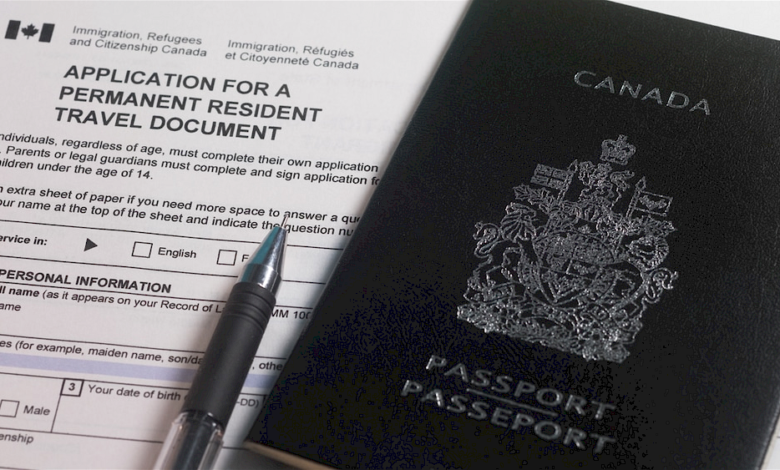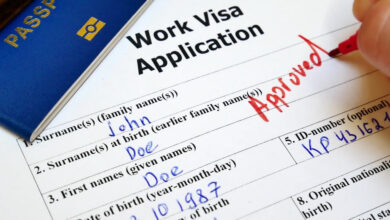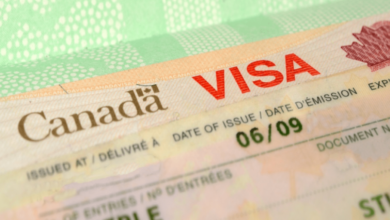IMMIGRATION TO CANADA — THE ULTIMATE TO MAKE IT HAPPEN

Are you interested in Canada’s immigration but not sure how? Whether you want Canada to be your temporary or permanent home, the most up-to-date information is important to get access to.
Our section on Immigration to Canada has three main programs for you to consider:
Work permits: Services that require you to work for a limited time in Canada.
Permanent Residence: Services for long-term citizenship, including economic programs (including Express Entry) and family sponsorship.
Study permits: permission to study at approved institutions, with the option of working during and after your studies, and options for transition to permanent residence.
Express Entry
Express Immigration to Canada is available to qualify, English- and/or French-speaking foreign employees, traders, and graduates. Individuals of any age can be a candidate but younger workers seeking immigration to Canada are given priority.
When draws are made from the Express Entry pool, the top-ranking candidates are invited to apply for permanent residency in Canada. In addition, an applicant can get a qualified job offer or a provincial nomination via one of the various sources of the Express Entry-aligned Provincial Nominee Program (PNP).
Express Entry has proven to be a fast immigration route to Canada, with over 80 percent of applications being processed within six months. In addition, Express Entry is a system that rewards proactive individuals who can prove to the government that they are likely to settle in Canada to be economically successful.
The government has confirmed that the Express Entry pool is now Canada’s main source of economic immigration, and the CRS cut-off threshold has gradually decreased over time. The Express Entry scheme invites applicants to apply through four separate programs. Those are:
Federal Skilled Worker Class (FSWC): for those with more than one year of accomplished service.
Federal skilled Trades Class (FSTC): intended for those with a skilled trade credential.
Canadian Experience Class (CEC): ideal for international workers who have acquired legal job experience in Canada (through the IEC system for example) and are now pursuing permanent residency.
Provincial Nominee Program (PNP): Canadian provinces and territories can appoint people in the pool who are interested in living and working in a given province or territory.
Canadian Experience Class (CEC)
Candidates must develop an Express Entry Profile under the CEC and be invited to apply for immigration to Canada before submitting an application via Express Entry.
Immigration, Refugees, and Citizenship Canada aim to process applications within a half year, although applications for the Canadian Experience Class (CEC) have been found to be processed faster in many instances.
Federal Skilled Worker Class
Registered individuals are measured according to the FSWC points system and must score at least 67 points (out of 100) on this grid to qualify. Points are given for age, language skill, educational level, work experience, whether the applicant has a job offer or not, and some adaptability factors.
Federal Skilled Trades Class
Qualified, skilled merchants from all over the world seeking to immigrate to Canada. One way to be qualified as a tradesperson is to get a work offer from a Canadian employer in your company. For federal skilled trades candidates, the language ability criteria for entering the Express Entry pool are set lower than for FSWC and CEC candidates.
Immigration, Refugees, and Citizenship Canada (IRCC) is targeted at handling requests within six months. Eligibility for the program does not guarantee the issuance of an invitation to apply for immigration to Canada or the granting of a permanent residency.
Provincial Nominee Programs
Some PNP sources, illustrated above, are compatible with the Express Entry scheme. A nomination certificate obtained through an enhanced PNP stream results in 600 additional Comprehensive Ranking System (CRS) points being awarded to an Express Entry candidate, effectively ensuring that an invitation to apply (ITA) for immigration to Canada is issued at a subsequent draw from the Express Entry pool.
PNP streams that are not Express Entry aligned are known as base streams. A certificate of nomination obtained through a stream of the base PNP does not alter the score of an Express Entry CRS nominee. Indeed, qualifying individuals can apply to a base PNP stream without ever providing an Express Entry profile, and base PNP streams that give individuals who are not qualified to join the Express Entry pool a pathway to permanent residency.
Base Provincial Nominee Programs streams leave the door open for economic immigration into Canada for individuals not qualifying for Express Entry. Some provinces require individuals to make a free expression of interest in immigrating to their province, with fees payable if or when an invitation to apply to the PNP is given and a corresponding application is submitted. Many PNP sources function on a first-come, first-served basis and a processing fee will, therefore, be requested upfront.
The federal processing time for enhanced PNP sources is typically inferior to six months. For base PNP sources, federal-stage average processing times are 15 to 19 months.
Atlantic Immigration Pilot Program
Individuals with an offer of jobs in one Atlantic province, including Nova Scotia, New Brunswick, Prince Edward Island, or Newfoundland and Labrador. The AIPP is divided into three sub-programs: Atlantic High-Skilled Programme, Atlantic Intermediate-Skilled Programme, and Atlantic International Graduate Programme.
Applicants must have a job offer in one of the Atlantic provinces from a designated employer and must intend to live in their province of destination.
Immigration to Quebec
Individuals and families who want to permanently live in Quebec Province, Canada’s only primarily French-speaking province, close to Montreal City. Quebec chooses its own economic immigrants, who receive a Quebec Certificate of Selection (CSQ). With a CSQ, an individual can then apply for permanent resident status to the Government of Canada.
Fees charged by the Quebec government for the principal applicant are $812, as well as $174 for a spouse or partner and $174 for every minor child. For this program, the Quebec government has introduced a new Express Entry-style application management system that shifts it from a first-come, first-served (or supply-based) system to a demand-based system that places a limit on received applications.
Quebec provides a culture and economy which is primarily French-speaking. Although French is not currently compulsory under the QSWP, under the grid of eligibility points it is weighted considerably more favorably than English.
Quebec Immigrant Investor Program
High net worth individuals seeking to make a passive investment in the Quebec region. The investment agreement is one of the documents to be submitted with the Quebec Certificate of Selection Request (CSQ), which must be obtained before the applicant and his or her accompanying family members can apply for immigration to Canada, if applicable.
The Quebec government guarantees the passive investment, and brokers and trust firms offer the possibility to finance the investment.
Quebec Entrepreneur Program
Eligible applicants must request a Quebec Certificate of Selection (CSQ) permit. The applicant and his or her accompanying family members can apply for immigration into Canada with a CSQ, if applicable.
Fees charged by the Quebec government for the principal applicant amount to $1,099, with additional fees of $174 for an accompanying spouse or partner, and $174 for each minor child. The federal government reports a 54 month processing period. Applicants will have arrangements to stay in Quebec province.
Quebec Self-Employed Program
In Quebec, self-employed workers with net assets of at least $100,000 and at least two years of experience in the trade profession they wish to practice.
Although self-employment can be difficult to prove or not completely recognized as work experience under most Canadian economic immigration schemes, the Quebec Self-Employed Program encourages self-employment and provides a path to permanent residency in Canada for self-employed persons.
Entrepreneur Start-up Visa
Entrepreneurs with the expertise and ability to develop creative Canadian companies that will create jobs for Canadians and compete internationally. The Entrepreneur Start-up program represents a fairly new addition to the list of business immigration programs to Canada.
At the time of obtaining permanent residency applicants must:
Effective applicants are in a good position to make their business proposal a profitable one in Canada with the help of a designated organization.
Provide successful and ongoing business management from within Canada; demonstrate that an integral part of the company is taking place in Canada; and demonstrate the integration of the business in Canada.
Preparation is essential. Not only do applicants need to gain a specified organization’s attention and support, but doing so is not a guarantee that Canada’s government will also support the proposal.


